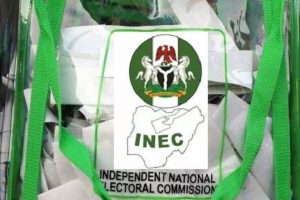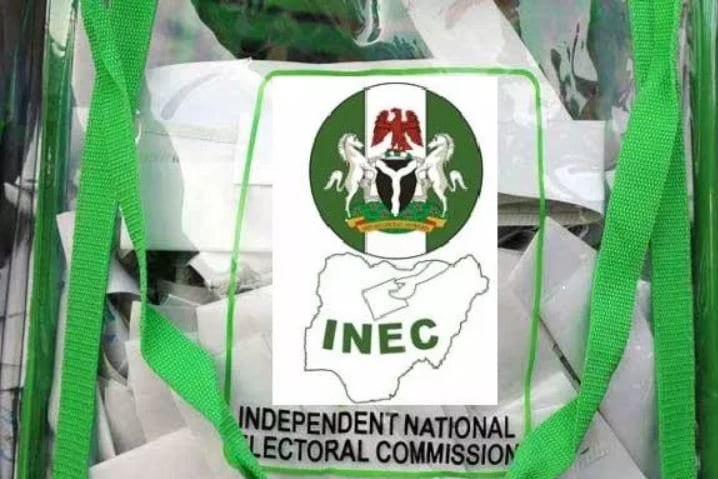
Now that Pre-elections (activities before elections) are underway, we should expect catalogues of Law suits. After elections in 2023, the flood gates of cases will be opened. Lawyers will smile to the bank, the same way delegates are currently smiling. “Lucky” Politicians will have the courts declare them the winner of an election, notwithstanding the official results as would be declared by the National body responsible for conducting elections in Nigeria, to wit: INEC. (Independent National Electoral Commission).
To be candid, the populace might not necessarily have the final say as to who wears the crown after an electoral exercise has been carried out in Nigeria. It is the court.
In March 2019, Ihedioha won and was declared the winner of the Imo State Gubernatorial elections, however his victory was overturned by the Supreme Court, and Hope Uzodinma, who came forth (4th) at the general elections was sworn in to be the Executive Governor of Imo State. Same was the case of Adeleke of Osun state amongst others. In other words, a person can win by obtaining the highest number of votes casted in an election and be declared the winner of that election by INEC, but due to certain reasons, the court can declare another candidate who contested the same elections as the winner, notwithstanding the position attained in the general elections.
Considering the fact that the court has the final say, it will therefore be imperative to consider certain important legal details as regards elections in Nigeria.
Election petition is the process used in challenging the validity of an election. An election petition is a special procedure on its own (sui generis). The following are the elective positions awarded in Nigeria:
- The office of the President of Federal Republic of Nigeria. (Hereinafter referred to as FRN)
- The office of the Vice-President of FRN
- The office of Governor of a state
- The office of the Deputy-Governor of a state
- Members of the National Assembly (Senate and House of Representatives).
- Members of the House of Assembly of States
- Chairman of Local Government Area/ Vice Chairman
- Councilor of LGA
The various laws enacted by state regulates the last two being residual matters to the state. See section 7 of the Constitution of the Federal Republic of Nigeria (1999 as amended), hereinafter referred to as CFRN; AG Abia & ors v. AG Federation.
Courts with jurisdiction in election petitions.
The following are the courts with jurisdiction over election petition. The courts with jurisdiction are:
- Court of Appeal pursuant to section 239 CFRN
- The National and State Houses of Assembly Election Tribunal, section 285 CFRN
- The Governorship Election Tribunal
Court of Appeal – section 239 CFRN, 1999;
The jurisdiction of the court of appeal in election petition is over the office of president and vice-president. OBASANJO V YUSUF.
Governorship Election Tribunal – section 285(2) CFRN
“There shall be a Governorship Election Tribunal for each state of the federation – section 285(2) CFRN (second alteration)”. The jurisdiction is to determine whether any person has been validly elected to the office of Governor or Deputy-Governor of a state.
National and State Houses of Assembly Election Tribunal – section 285(1) CFRN, section 9 2nd alteration.
“It is to be established in each state of the federation and the FCT.” Their jurisdiction is to determine whether a person has been validly elected as a member of the National Assembly (both senate and house of reps) or State House of Assembly – section 285(1). Their jurisdiction is exclusive.

www.legalnaija.com/shop
General principles in Election Petitions
- All actions arising from the conduct of an election are commenced by way of petition.
- Election tribunal shall be constituted not later than fourteen (14) days before the day of the election, its Registries must be open for business seven (7) days before the election.
- Where quorum is not formed or quorum is subsequently lost during the proceedings, any decision so reached is a nullity.
- An election petition must be filed within twenty-one (21) days after the date of the declaration of the result of the election. See section 285(5) CFRN as amended.
- The date the result is declared is excluded from the computation, and if the next day is a Sunday or a public holiday, both days are equally excluded. See section 15(2) Interpretation Act, Order 23 FHC (civil procedure) Rules; YUSUF v. OBASANJO
- There is no extension of time within which to file the petition. Once a petitioner fails to file his petition within the 21 days, he is statute barred and loses his right to relief. See KAMBA v BAWA (2005) 4 NWLR (Pt. 914) 43; MOGHALU v. NGIGE (2005) 4 NWLR (Pt. 914) 1. However, it must be noted that by paragraph 45(1) of the First Schedule to the Electoral Act, as amended, the court or tribunal may extend the time within which to do any other thing under the Act, except filing a petition and determining a petition.
- An election tribunal shall deliver its judgment in writing within 180 days from the date of filing the petition. See section 285(6) CFRN as amended; ABUBAKAR v GONI
- An appeal from a decision of an election tribunal or court shall be heard and disposed of within sixty (60) days from the date of the delivery of judgment of the tribunal or court. See section 285(7) CFRN as amended; section 9 2nd
- By section 285(8) CFRN, in all final appeals from election tribunals, the court may adopt the practice of first giving its decision and reserving the reasons thereof to a later date. See section 285(8) CFRN as amended.
- The requirement as to time in section 285(6) CFRN within which a tribunal or court shall deliver its judgment is sacrosanct, strict and cannot be extended. This rule also covers trials de novo ordered on appeal. Such trial de novo can only take place within the 180 days from the date of filing the petition. See ABUBAKAR v. GONI (2012) 7 NWLR (Pt. 1298) 147, where in interpreting the said section 285(6) CFRN, the SC per Rhodes-Vivour (As he then was) laid the following principles:
“The period of 180 days is not limited to trials only but also to de novo trials that may be ordered by an appeal court. Once an election petition is not concluded within the 180 days from the date the petition was filed by the petitioner, an election tribunal no longer has jurisdiction to hear the petition and this applies to rehearings. The period of 180days shall at all times be calculated from the date the petition was filed.
Courts do not have the vires to extend the time assigned by the Constitution. The time cannot be extended, or expanded, or elongated, or in any way enlarged. The time fixed by the constitution is like the Rock of Gilbraltar or Mount Zion which cannot be moved. If what is to be done is not done within the time so fixed, it lapses as the court is thereby robbed of the jurisdiction to continue to entertain the matter.”
The court of appeal in its appellate jurisdiction has no power to order the retrial of a petition which had lapsed by effluxion of time. There is no statutory provision for such a step.
However, while it is salutary that the provision as to time sought to cure the mischief of prolonged election petitions, deserving de novo cases should not be shut out on grounds of this technicality as this would defeat the purpose of the provision. Mores, mischievous parties and counsel may capitalize on it to raise frivolous objections and go on appeal when they are overruled on as a tactic to waste time.
Conclusively on this part, for a person to be able to bring a Petition before the court, he must have participated in all five (5) stages of an election. They are, to wit:
- Nomination
- Accreditation
- Voting
- Collation
 Sam Omotoso is a practicing lawyer and a chartered arbitrator in FCT, Abuja. His interests spans across Medical Law, Election Petition and International Commercial Law. He also discusses legal issues On Eagles FM (102.3) by 10am-11am every Saturday.
Sam Omotoso is a practicing lawyer and a chartered arbitrator in FCT, Abuja. His interests spans across Medical Law, Election Petition and International Commercial Law. He also discusses legal issues On Eagles FM (102.3) by 10am-11am every Saturday.

